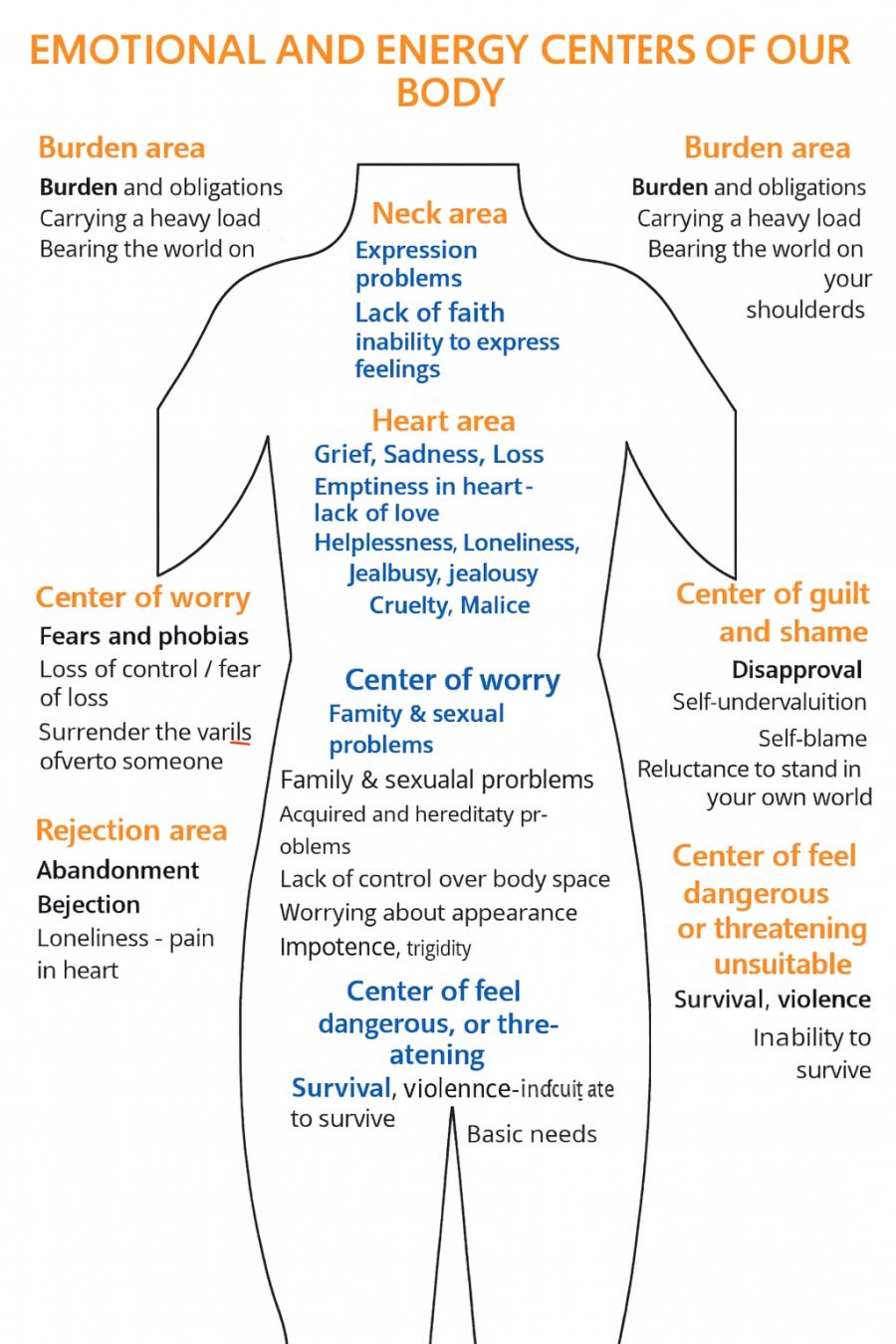In modern times, we often encounter the idea that nothing happens without a reason. But where should we look for that reason? How can we find out why?
First of all, we must realize that our bodies are almost perfect machines. If we imagine the body as an engine, we know that if we take good care of it, it will most likely serve us well.
However, if we overload it and ignore basic principles, even the best and highest-quality engine will eventually develop problems. If one part is overstrained, the weakest link will break down and cause trouble.
The same happens with our bodies.
If we don’t give our body the right “fuel” and care, it’s only a matter of time before some part gives up.
Many of us are switching to a healthier lifestyle, eating better, moving more. That is wonderful, almost perfect.
But only almost.
Even if we provide good nutrition and exercise, stress and negative experiences still affect us. We live through joys, love, pain, trauma — all of it leaves marks.
This is something we cannot avoid if we want to truly live. The problem is that most of us think too much — and mostly about the bad things rather than the good ones.
The way we think about events shapes how we perceive them. And when our perception is negative, our body also suffers.
Because we are self-learning beings, we are able to adopt and manifest physical issues and illnesses that originally belonged to our parents or close ones.
But isn’t it normal that some things are hereditary?
Research is showing that heredity is not as decisive as we once thought. Genes may set the stage, but it doesn’t mean we are doomed to repeat our parents’ illnesses. Even “bad” genes can be repaired.
Emotions and Illness
What we really “inherit” is not diseases but patterns. We learn both the good and the bad. From parents, teachers, friends — we build mental programs that run much of our lives.
Stress is: the body’s reaction to our perception.
When we encounter stress, our body reacts — muscles tighten, organs strain, unpleasant sensations arise. Mind and body are one.
Chronic stress overloads the body with hormones and chemicals. Our body becomes like a snake poisoning itself, biting its own tail.
Presence of stress hormones prevents the body’s natural self-healing.
The big difference between us and an engine is that we actually can recover from even very serious issues, long after a machine would fail.
Negative emotions can damage specific organs. For most of us, the patterns are similar. Diagnostics like psychosomatics or meta-medicine are not dogmas, but they often match reality surprisingly well.
Diagnosis can help us understand the cause, but we also need a practical tool for change. FasterEFT is one of the most effective methods for that, which is why so many people love it.
It’s not always necessary to know the exact cause. Sometimes just releasing the emotions is enough for healing to begin. Either way, your body will always tell you what is wrong.
Look at your body: which part needs attention? Which emotions might be connected? Make a list of memories and events, then apply the tools you’ve learned, and healing will follow.
If you can’t do it alone, there are people ready to help you.
And how does this all really work?
“Good day, Tom, thank you for this article. Suddenly so many pieces of the puzzle fit! I believe this will greatly help those of us working with FasterEFT. Thank you so much. PS: we once worked together via Skype on my back pain, and since then it has been gone. The chronic spot that hurt constantly is simply not there anymore. Thanks to you. Dana”
